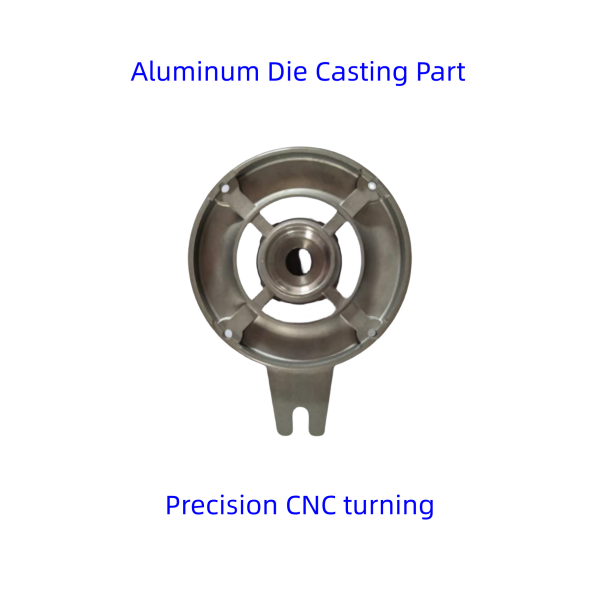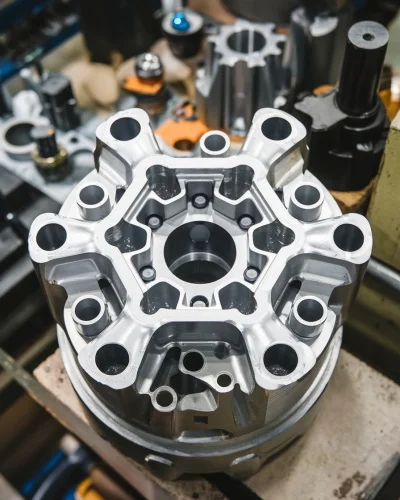Exploring Aluminum Foundry operations that deliver top-tier casting results
Wiki Article
Checking out the Role of Factory Providers beforehand Modern Design Solutions
Foundry services are vital in forming modern-day design remedies - Aluminum Casting Company. They link the gap between traditional manufacturing techniques and the needs of contemporary markets. With advancements in automation and sustainability, shops are evolving to fulfill the demands of industries such as aerospace and automobile. This change raises questions regarding the ramifications for materials, procedures, and future technologies. What chances and obstacles lie ahead for factory services in this quickly transforming landscape?The Development of Factory Solutions in Design

The integration of computer-aided layout (CAD) and simulation software has changed the style and manufacturing processes, enabling foundries to generate complex geometries with greater accuracy. Additionally, the shift towards environment-friendly practices has actually led to the adoption of greener technologies and reusing efforts within foundries. As sectors significantly focus on modification and quick prototyping, shop services have actually broadened their abilities, guaranteeing they remain vital contributors to the engineering landscape. This development underscores the factory's vital function in supporting improvements across various sectors, consisting of auto, aerospace, and power.
Key Procedures and Techniques in Modern Foundries
Modern factories utilize a selection of essential procedures and techniques that improve the performance and quality of metal spreading. Amongst these, sand casting remains prevalent because of its flexibility and cost-effectiveness. Using innovative technologies, such as computer-aided layout (CAD) and computer-aided production (CAM), permits precise modeling and production, making sure high precision in component dimensions. Additionally, investment casting is preferred for creating intricate geometries with exceptional surface area coatings.Moreover, automation and robotics enhance production rate and consistency while reducing labor expenses. Strategies like additive manufacturing are significantly incorporated to create intricate molds and cores, thereby minimizing material waste. The application of thermal evaluation aids in enhancing casting procedures by managing and forecasting solidification behavior. Collectively, these techniques and procedures exhibit how contemporary shops are adapting to satisfy the demands of contemporary engineering challenges, guaranteeing remarkable item top quality and operational efficiency.
The Significance of Materials Option in Foundry Providers
Picking the ideal products is vital in factory solutions, as it straight affects the mechanical homes, sturdiness, and general efficiency of the end product. Different products possess unique features, such as tensile toughness, deterioration resistance, and thermal stability, which need to straighten with the desired application of the cast parts. Steels like aluminum and steel are typically selected for their strength-to-weight ratio, while alloys can boost details performance traits.The selection process entails thinking about variables such as manufacturability, cost, and accessibility, which can significantly impact job timelines and budget plans. Furthermore, developments in product scientific research make it possible for the growth of innovative composites and specialized alloys that deal with emerging engineering obstacles. As a result, a comprehensive understanding of material residential properties and their ramifications is important for designers and foundry professionals to attain effective outcomes in their jobs. This cautious option process ultimately enhances the integrity and performance of completion products.
Foundry Solutions in Aerospace and Automotive Applications
Factory solutions play a necessary role in the aerospace and automobile industries, where accuracy and performance are critical. These sectors rely greatly on the manufacturing of complex elements that need to meet strenuous top quality requirements and hold up against severe problems. Factories supply crucial solutions such as casting, machining, and finishing, ensuring components are lightweight yet durable, crucial for improving gas efficiency and safety and security.In aerospace, shop services add to the production of turbine blades, engine parts, and structural components, every one of which demand high-performance products and complex designs. In the automobile industry, foundries supply engine blocks, chassis components, and transmission cases, focusing on longevity and weight reduction.
Advanced factory methods, consisting of additive manufacturing and precision spreading, are increasingly utilized to satisfy the details needs of these markets. By supplying customized options, shop services help drive advancement and maintain affordable advantages in the fast-evolving aerospace and auto landscapes.
Innovations Driven by Factory Capabilities
Many developments in design are sustained by the advanced capacities of factory solutions. These services allow the production of intricate geometries and high-performance materials that are necessary for modern applications. As an example, additive production, typically recognized as 3D printing, has seen significant improvements via shop strategies, enabling the quick prototyping of intricate styles. Additionally, the capacity to cast light-weight alloys has actually revolutionized sectors such as aerospace and auto, leading to improved fuel effectiveness and efficiency.In addition, shops are significantly integrating clever modern technologies, such as automation and information analytics, to enhance production efficiency and quality control. These technologies not just lower waste yet also allow customization at range, meeting the specific demands of customers. By leveraging advanced shop capabilities, designers can discover new frontiers in item style and capability, inevitably driving progress across numerous sectors and establishing a structure for future improvements.
Future Trends in Factory Services and Engineering Solutions
The future of foundry solutions is shaped by arising trends such as lasting manufacturing practices, which focus on environmental duty. Automation and smart modern technologies are readied to improve performance and accuracy, while enhancing modification and flexibility will certainly satisfy the progressing demands of clients. As these trends develop, they will redefine the landscape of engineering solutions in the shop field.
Sustainable Manufacturing Practices
As industries progressively more helpful hints focus on environmental obligation, sustainable production practices within factory solutions are coming to be important to modern design services. These techniques concentrate on decreasing waste, minimizing energy consumption, and making use of environmentally friendly materials throughout the manufacturing procedure. By carrying out methods such as reusing scrap steel and enhancing melting processes, shops can especially decrease their carbon footprint. Additionally, the fostering of life process assessments enables producers to evaluate the ecological effect of their products from creation to disposal. Collaborating with suppliers committed to sustainability further improves the efficiency of these efforts. Ultimately, accepting sustainable production not only lines up with global ecological objectives however additionally promotes development and competition in the rapidly developing engineering landscape.Automation and Smart Technologies
While many sectors are embracing technological innovations, shop services are experiencing a significant transformation through automation and smart modern technologies. The assimilation of robotics and automated systems improves production performance, reduces human error, and increases the manufacturing process. Smart technologies, such as IoT and AI, allow view it real-time tracking and anticipating maintenance, which optimize operational performance and minimize downtime. These advancements facilitate data-driven decision-making, permitting foundries to react promptly to market needs and enhance product high quality. Additionally, automation decreases labor costs and improves office safety by dealing with hazardous jobs. As shop solutions continue to embrace these developments, they are positioned to redefine engineering solutions, leading to enhanced competition and sustainability in the production sector.Modification and Adaptability Patterns
Arising patterns in foundry solutions increasingly emphasize customization and versatility to meet special client needs. This change reflects a wider need for customized design options that adjust to certain project demands and market requirements. Firms are purchasing sophisticated innovations, such as additive manufacturing and electronic modeling, allowing them to generate customized elements effectively and cost-effectively. Therefore, shops are relocating away from one-size-fits-all strategies, offering clients the ability to modify designs and products in real-time. Additionally, cooperation between engineering teams and foundry solutions is coming to be extra integrated, cultivating development and speeding up time-to-market. This trend not only improves item efficiency but likewise supports sustainability by minimizing waste through precise manufacturing processes.Frequently Asked Concerns
What Are the Typical Prices Linked With Foundry Services?
Regular costs associated with shop services include product expenses, labor fees, tools use costs, and expenses expenses - aluminum casting. These costs can vary extensively based upon task intricacy, volume, and particular needs of the design option involvedHow Lengthy Does the Shop Process Normally Take?
The factory procedure usually takes anywhere from a number of weeks to a few months, relying on aspects such as complexity, product demands, and production volume, which can substantially influence timelines and total project distribution.What Industries Benefit Most From Foundry Solutions?
Industries such as automobile, aerospace, and building and construction advantage substantially from factory services. These fields count on accuracy spreading and steel manufacture to create complicated parts, enhancing product efficiency and operational performance in their respective applications.What Accreditations Should Shops Have?
Shops should possess accreditations such as ISO 9001 for top quality administration, ISO 14001 for environmental monitoring, and certain sector read more certifications like AS9100 for aerospace or IATF 16949 for automobile, ensuring conformity and quality assurance.Just How Do Foundries Ensure Quality Assurance in Their Processes?

Foundry services are important in forming modern-day design solutions. As design disciplines have advanced, the role of factory services has actually changed substantially to fulfill evolving industry needs. As sectors increasingly focus on modification and rapid prototyping, foundry services have actually broadened their abilities, guaranteeing they continue to be important factors to the engineering landscape. As sectors significantly prioritize ecological duty, lasting production methods within factory solutions are becoming vital to modern-day design remedies. Additionally, collaboration in between design teams and shop solutions is ending up being extra incorporated, fostering advancement and accelerating time-to-market.
Report this wiki page